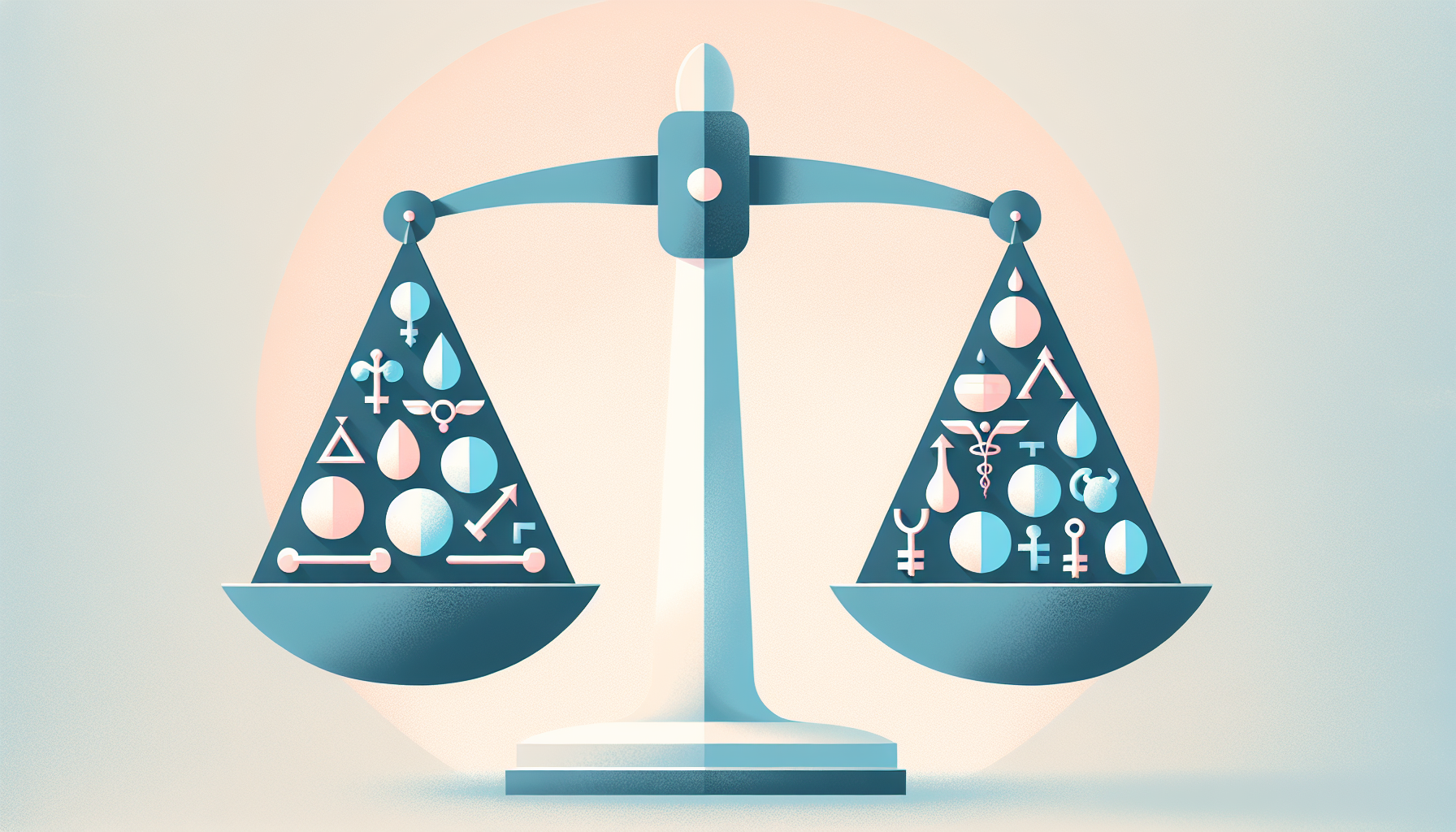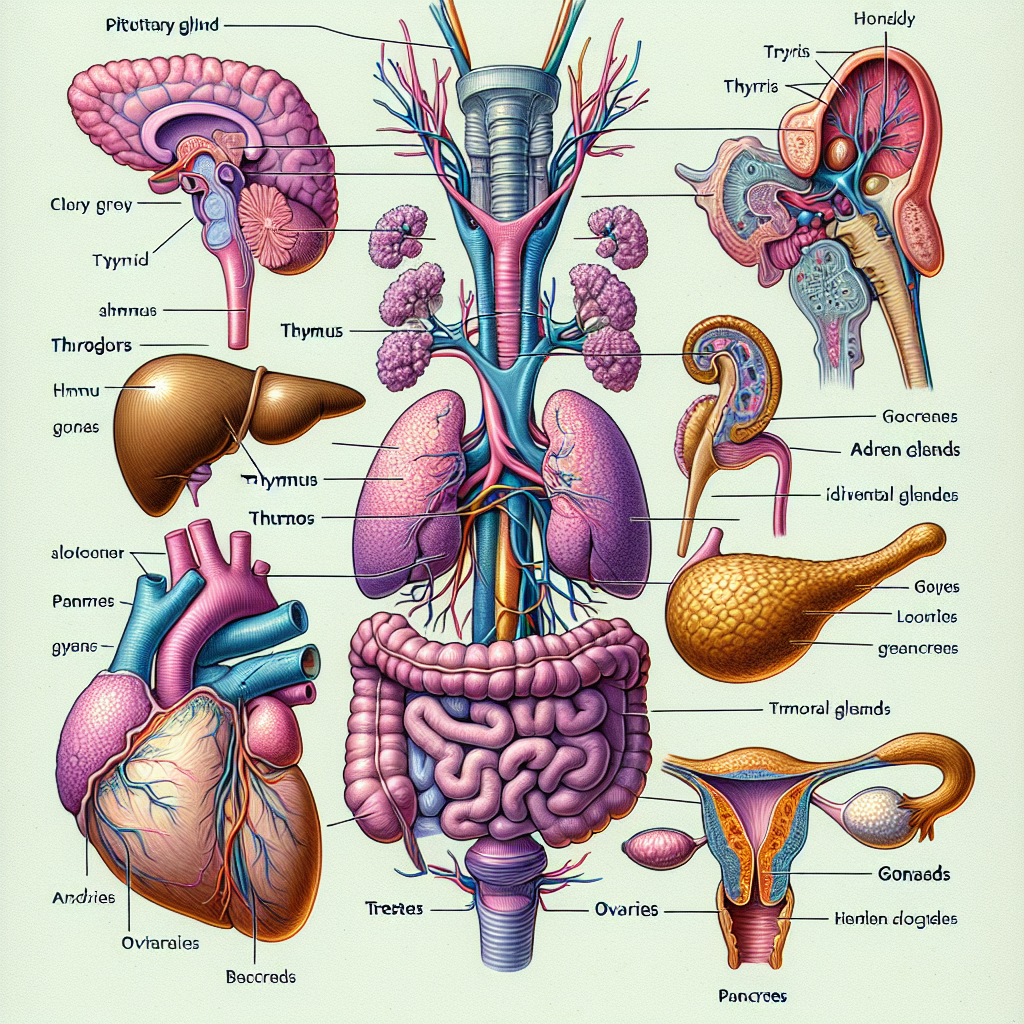Hormonal balance is a critical aspect of maintaining overall health and well-being. Hormones are chemical messengers that influence numerous physiological processes, from growth and metabolism to mood and reproductive health. When hormones are out of balance, it can lead to a range of health issues, necessitating careful management through the use of supplements and medications. In this comprehensive article, we will delve into the intricate world of hormonal balance, exploring the role of pharmaceuticals and natural supplements in managing hormonal imbalances.
The Importance of Hormonal Balance
Hormones play a pivotal role in regulating the body’s functions. Imbalances can occur for a variety of reasons, including stress, poor diet, environmental factors, and underlying health conditions. Symptoms of hormonal imbalances can manifest in many forms, such as fatigue, weight gain or loss, mood swings, and irregular menstrual cycles, among others.
To understand the significance of hormonal balance, it is essential to recognize the interconnectedness of different hormonal systems. For instance, the endocrine system, which includes glands like the thyroid, adrenals, and pancreas, works in concert to maintain homeostasis. Disruption in one area can have cascading effects on others, highlighting the need for a holistic approach to treatment.
Integrating Medications and Supplements
When it comes to restoring hormonal balance, both medications and supplements can play a vital role. Medications prescribed by healthcare providers are often used to treat specific hormonal disorders. For example, insulin or metformin are used for managing diabetes, while thyroid hormones are prescribed for hypothyroidism. On the other hand, dietary supplements can provide the necessary nutrients and herbal compounds that support the body’s natural hormone production and regulation.
It’s important to integrate these treatments wisely, as they can interact with each other. For instance, the intake of certain supplements may affect the efficacy of prescription medications. Therefore, it’s crucial to consult with healthcare providers before starting any new supplement regimen, especially if you are already on medication.
For more information on how to manage the use of supplements alongside medications, consider reading "Understanding the Interactions of Multiple Medication Use" and "Identifying and Managing Supplement-Drug Interactions".
Supplements for Hormonal Health
Several supplements are known to support hormonal health. For instance, omega-3 fatty acids, found in fish oil, have been linked to improved mood and reduced inflammation, which can positively impact hormonal balance. Magnesium is another vital nutrient that plays a role in over 300 enzymatic reactions in the body, including those that regulate hormonal activity.
Vitamins such as Vitamin D are also critical. It functions like a hormone within the body and is essential for maintaining bone health. For a more in-depth look at the role of vitamins in hormonal health, "The Role of Vitamins in Managing Stress and Anxiety" provides valuable insights.
Adaptogens and Hormones
Adaptogens are a special class of herbs that are believed to help the body resist stressors of all kinds, whether physical, chemical, or biological. These herbs have been used for centuries in traditional medicine and are gaining popularity as a natural means to balance hormones. Examples include ashwagandha, rhodiola, and holy basil, each of which has been studied for its potential to modulate the stress response and, consequently, support hormonal health.
For those interested in how stress impacts medication and supplement efficacy, "The Impact of Stress on Medication and Supplement Efficacy" is a must-read.
Medications for Hormone Therapy
In some cases, particularly where there is a significant deficiency or excess of a particular hormone, medication becomes essential. Birth control pills, for instance, contain synthetic hormones that can regulate the menstrual cycle and treat conditions like polycystic ovary syndrome (PCOS). Bio-identical hormone replacement therapy is another option that aims to closely mimic the body’s natural hormones and is often used during menopause.
The Role of Precision Medicine
Precision medicine is an emerging approach that customizes healthcare, with medical decisions tailored to the individual patient. This includes hormone therapy. Advances in genetic testing have made it possible to identify individual variations in genes that dictate hormone function, allowing for more personalized medication plans.
For insights on the latest in precision medicine, "Advances in Personalized Medicine and Their Impact on Supplementation" provides a comprehensive overview.
External Resources for Further Reading
As you explore the options for balancing hormones with supplements and medications, it’s important to rely on high-quality, niche resources for information. Here are some valuable external resources that delve further into this topic:
- The Endocrine Society
- The National Center for Complementary and Integrative Health
- The American Thyroid Association
- The North American Menopause Society
- The International Society for Nutritional Psychiatry Research
These resources can provide more in-depth knowledge and research findings on the use of supplements and medications for hormonal balance.
Conclusion
Balancing hormones is a delicate process that requires attention to detail and an integrated approach to treatment. Whether through prescribed medications, dietary supplements, or a combination of both, achieving hormonal equilibrium is possible with the right guidance and care. Remember to consult with healthcare providers before making any changes to your medication or supplement routines, and utilize the wealth of information available from reliable sources to make informed decisions about your health.



